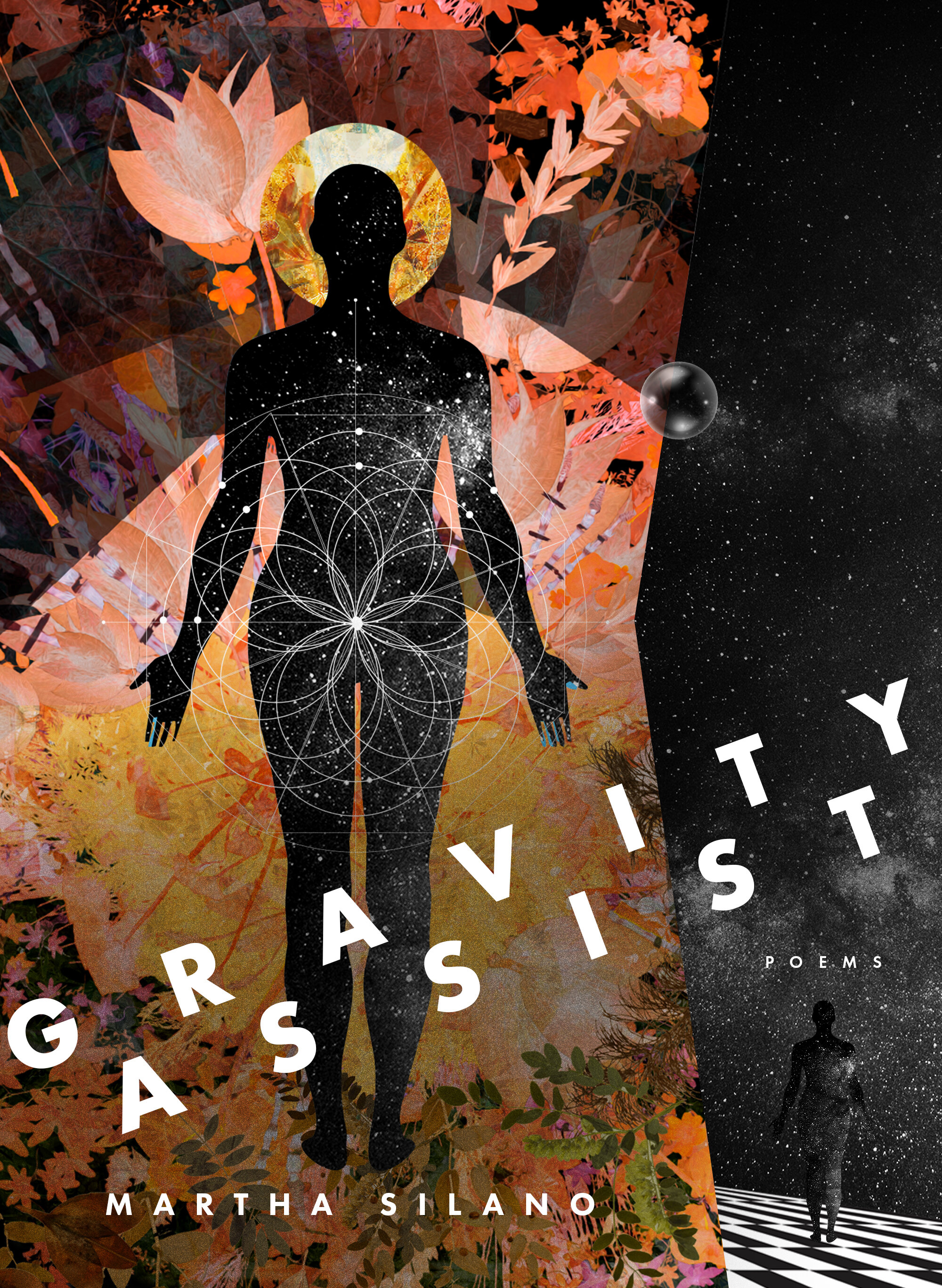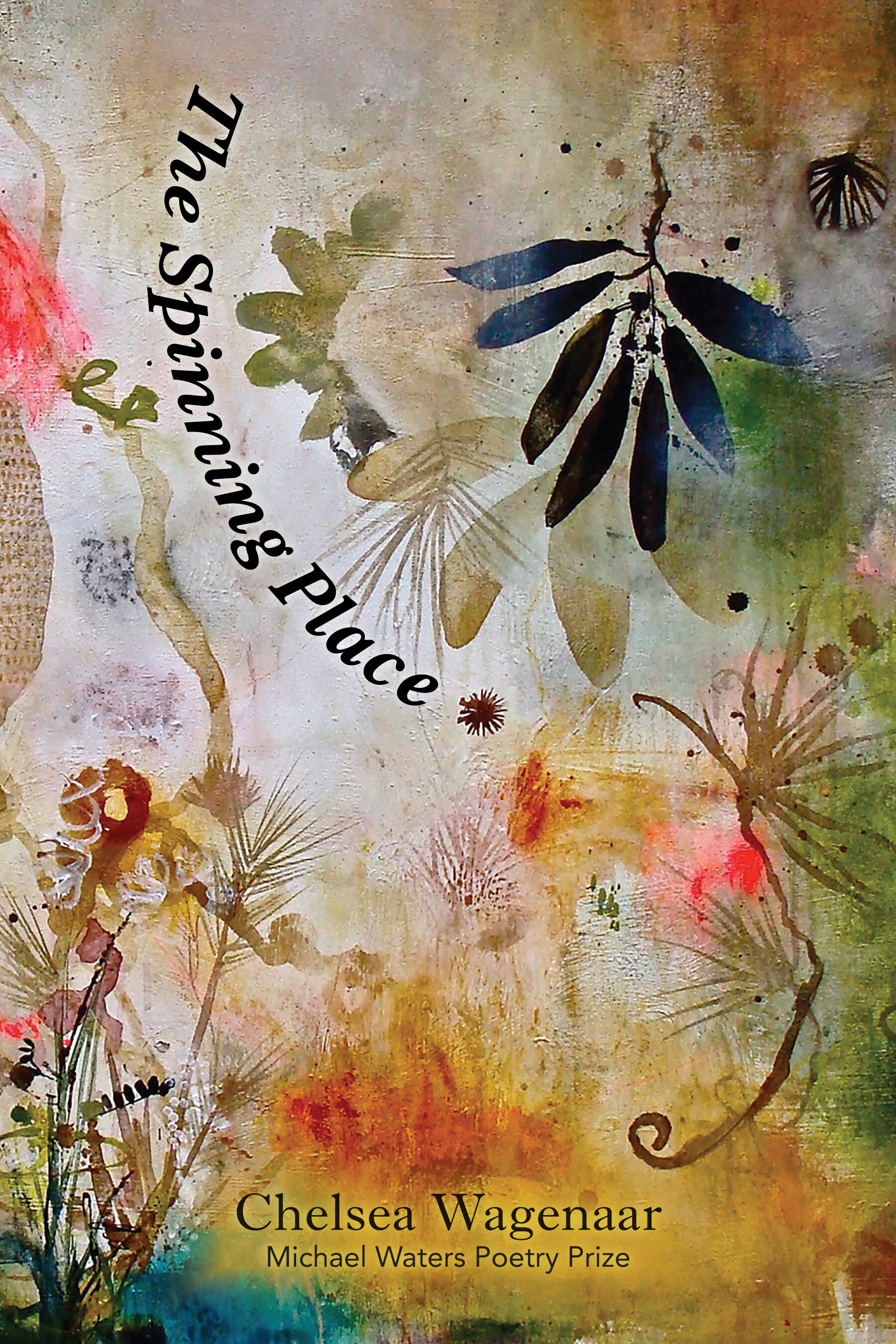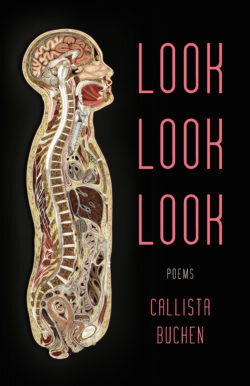COLLECTOR, SELF:
Martha Silano, Callista Buchen, Chelsea Wagenaar
by Annie Kim
Visiting the Kunsthistorisches Museum in Vienna last year, I got quickly overwhelmed by the delights of its kunstkammer —a “cabinet” or room of curiosities. Clocks, fans, goldsmithed vessels in every size and shape. Even a table-top ship that propelled itself to music while tiny sailors danced on deck. Here, objects that didn’t belong to the same time or geography could be assembled, named and coded, preserved from the forces of destruction.
Writers curate life, too, of course. The modern poetry “collection,” more than any other literary genre, operates on the buffet principle: we can all eat a bit of everything. Poets collect—their experiences, their worlds—in boxes as tiny and splendid as Joseph Cornell’s, as large and strange as the nocturnal desert. And the self that glimmers through collections can be candid or implied, clearly framed for autobiographical consumption or artfully obscured. When I pick up a new book of poetry, I am always interested in the self that’s being constructed. The emerging portrait of the poet laboring to make sense, to create meaning, reconnects me to my own desires to make.
The three poets whose books I’ll be discussing are each master collectors and self-inventors.
Martha Silano collects nothing short of the universe itself, both the wonders and physics thereof, in Gravity Assist (Saturnalia Books, 2019). Callista Buchen’s Look Look Look (Black Lawrence Press, 2019) and Chelsea Wagenaar’s The Spinning Place (Southern Indiana Review Press, 2019) boldly investigate the self that grows and splinters through motherhood, as well as the body that’s radically redefined in the process. In their elegance, in their dedication to craft, these three women poets offer us glimpses of the collected, many-layered self.
one
Martha Silano, Gravity Assist (Saturnalia Books, 2019)
Among our three collections, Martha Silano’s Gravity Assist fits most squarely within the kunst- and wunderkammer tradition. Each of the book’s sections (“Periapsis,” “Orbit Insertion” and “Escape Velocity”) navigates the shifting distances between speaker and world, the inexhaustible layers of the visible and invisible. And, like those generously packed curiosity cabinets of the past, Silano’s poems overflow with natural and manmade artifacts, all gorgeously described. Take this passage from “Beneath twelve feet of ashy topsoil”:
. . . here they are: the blue-glass
pitcher, snake bracelet, bowl in the shape of a shell.
Here’s the bronze speculum, tools for extracting,
for pulling back the skin, the bloodletting suction cup.
Here, the scales for weighing, by the libra, by the unicae,
eel and octopus, almonds and broad beans, peaches
and dates; here the ruddy amphorae, two-handled
vessels housing garum, fruit sauce, oil; . . .
The hawk-like eye and insatiable appetite for the world, on display here, are just a few of Silano’s gifts. They come, as well, with an encyclopedic vocabulary for naming. Dozens of the scientific, medical and geographic references in Silano’s poems sent me straight to Google. What exactly is a “benthic tubeworm,” anyway? And where are those “Kunlun Shan Mountains”? In some ways, of course, the answers don’t matter, as these precisely named things serve, in part, to ornament the poem’s surface. Though, like a wunderkammer bristling with taxidermied bodies of obscure creatures, they offer the reader sharp new bits of knowledge.
Sparks fly when Silano’s hunger for naming intersects with human foibles. In “Ode to Autocorrect,” for instance, O’Hare Airport transforms to “o hate.” Hate leads us quickly down the slippery path, where the innocent text, “I get home,” turns into “I get guns.” The litany that follows is equal parts delicious and disturbing:
. . . My feet, iamb
of a son of a birch, of a brick chatting
with the devil, with God, with a listener
not listening. Because he’d gone bonnets,
his garden bounty a faded wine, his wife’s
linguine longing for a golden ear,
so I took her to the botanical gardens
in my getaway car, to a fruit on a vine,
but the limes went lemur, the night to nonfat,
the clear to catastrophic.
Given all this richness, what kind of self is implied by these poems?
“Despite Nagging Malfunctions,” a pseudo-ars poetica, offers one clue:
. . . I fell in love
with Fornax, Latin for furnace, divine impersonation
of oven, Roman Goddess of baking bread, constellation
from which we gander at galaxy UDFj-39546284,
most distant object in the universe.
In this charmingly imagined origin story, both a love of seeing and a love of distance define the speaker. Likewise, “The World” rhapsodizes all things untouchable and untamable: the world’s “toothsome fissures” and “calderas,” its convoluted formulas and “spiral notebook of incomprehensibles.” But the poem closes on the image of “the blue beyond the pelvic bone’s socket: frosty, flanged, fecund.” Here, Silano reminds us that what seems intimately near remains, ultimately, distant. Infinite.
And don’t we all long for the infinite?
“I am the miraculous,” begins the penultimate poem in the book. The speaker is both the omnipresent “traffic running smoothly down Oak” and the hidden “hyaloid canal/that gave you sight,” a self that’s fleeting, like “lightning’s formation,” but also strangely persistent:
All of me summed up
in one small artifact: a pair of fornicating froghoppers
entombed in sap.
This is Martha Silano at her best: naming, summing, recklessly inventing. “I bore thousands,” she pronounces happily at the end of this poem, “each one named Incredulous.”
two
Callista Buchen, Look Look Look (Black Lawrence Press, 2019)
“Woman: be permeable, be ocean, be habitat.”
So begins Callista Buchen’s “Regeneration,” one of the first poems in her book-length exploration of the self splitting into mother. “Our most ambitious work,” observes Buchen: “mother as birthplace, where woman becomes location.” (“Metaphysics”)
If Silano’s collection finds its visual counterpart in the wunderkammer, Buchen’s comes nearest to collage—tissue against tissue, feather between steel wires, ink bleeding through it all. In fluid prose poems that build over time into an engrossing narrative arc, Look Look Look takes us inside the richly alert consciousness of a woman stepping out of her private self into the borderless landscape of the mother.
Not surprisingly, then, this self collects throughout the book like water in its many forms. “I am light rain, hard rain, thunder, hail,” muses the speaker in “Milk Drunk.”
Buchen underscores this scattered sense of consciousness by employing multiple points of view throughout the book, shifting seamlessly from the third-person in one poem to an “I” or “you” in the next. These layered voices give Buchen’s meditations both spaciousness and variety. Here’s an example of the third-person speaker ruminating on life after childbirth in the delightfully quirky “Quick Change”:
She keeps her body around the house. There is body in the coat
closet in the hall by the front door, body under the bed in plastic
bins, a pile in the garage by the recycling bin. The spares, she
calls them. She misplaces her body like she loses her keys.
And here’s the “you” meditating on obsessive maternal compulsions in “Swaddle,” quoted below in full:
At home, the baby might as well be in a museum, under glass, his
perfect fingernails, how he smells of melon and flour, wrapped
and wrapped in muslin until he is preserved. This is your job
now. Look, you could be saying to visitors, at what has been saved! See
his open mouth, how he uses all this room to breathe. You are the alarm, the
resin, the final word on keeping him alive. You document,
record, and wrap him again like the artifact you imagine him to
be. You do everything right and lie when you don’t. Look, you say.
Look.
As these two passages illustrate, Buchen approaches the disorienting, exhausting states of motherhood with quicksilver humor and irony—hallmarks of a style that make this collection deeply pleasurable to read, even addictive.
But Buchen can also be mercilessly raw, heartbreakingly direct. Take this passage from “Loss,” for instance, where the speaker recalls the experience of miscarriage:
We do the research. We hear the quiet, see the heart slow, vanish.
For a while, we are made of words, of embryo, of viable, of wait.
I am grief. I am double and half. I carry the dead body, which is
better than no body. I can be a coffin. That easy.
While these three previous poems lean toward narrative, Buchen is also a master of the prose poem as miniature essay. Of metaphor and argument. The real as it blurs into the surreal.
In “The Virtues of Cement,” for example, Buchen riffs on the idea of mother as water. Wouldn’t it be better, the speaker ponders, to be cement? Construction motifs—trucks, hard hats, hazard cones—appear throughout the book, but here it’s cement itself that appeals: solid, elemental, thoughtless. Consider the first half of this poem:
All the water, the constant wetness, overwhelms you. You see
now that cement is the way to go. You like the way after you are
gone, you won’t have to watch the destruction, how someone else
will jackhammer your sidewalk, your basement, your backyard
slab with its initials and dates. A leftover pile of unnatural rocks.
You know better.
As this passage shows, Buchen’s sentences move at the pace of speech: the kind of intimate speech we hear in our own heads, connecting thought to thought almost without hinges. Every word, whether it’s the imagined “jackhammer” drilling the sidewalk or the “leftover pile of unnatural rocks,” feels exactly placed. And when Buchen later bemoans the shapelessness, the seeping of water—metaphors for the borderless maternal self—we hardly notice how we’ve gotten there.
We merge with the speaker as she ruminates: “You aren’t even after permanence. . . . You build your wall and wait, eyes wet with smoke.”
three
Chelsea Wagenaar, The Spinning Place (Southern Indiana Review Press, 2019)
Fra Angelico, The Annunciation, Convent of San Marco (1440-45)
Mary looks a little pensive in all the early Annunciations, including my favorites by Fra Angelico. Awestruck, yes. But in the cautious tilt of her body, the firm seal of her lips (resolute? resigned?), she’s always struck me as not quite sure whether she wants to hear what the angel is about to say. Maybe the birthday song she’d sing at that moment would be, as Chelsea Wagenaar deftly observes in the The Spinning Place, “both elegy and ode, a tune that rises / from a dark depth no one else can know.” Praise, yes, but “struck from the flint of sorrow.”
Wagenaar’s collection brims with both elegies and odes, all elegantly crafted. Elegy for a sister’s lost twin son. A miscarried child. A young woman struggling to reshape her life after trauma. Odes to the unborn baby, the small child learning her words, the husband tweezing a splinter from his wife’s heel. Here are poems that tenderly extend to all the loved ones in the poet’s orbit—including horses, foxes, frogs, and birds out the window—giving each an account, holding each to the collector’s light.
If Buchen’s book spotlights the soul’s trials in the wake of an avalanche, Wagenaar’s embraces the sweet enclosure of all that snow. Take this poem, “Annunciation (While Pregnant, I Develop Aviophobia),” in which Wagenaar describes the sudden onset of acute mental and physical fear:
. . . my body glyphed with secret & threatening to tell,
I slipped from consciousness into the stewardess’s
firm grip on my elbow, the oxygen mask
she cupped over my face, her waterwords calling
Is there a doctor on board? I fell & fell
from that sky, unearthly, impossibly winged, to find you
in the airport, my oracle’s lips lusterless.
In Wagenaar’s hands, the bizarre out-of-body experience of aviophobia is metabolized into a spiritual journey, a path to knowing. This passage also demonstrates Wagenaar’s gift for quick, inventive metaphor—body “glyphed,” the flight attendant’s “waterwords”—and for creating lush, stately music at the level of the line. Elsewhere, she envisions the mother’s body as a “solstice,” the baby as a “small motor churn[ing],” who blows “raspberries with her lips” and forms “glass pearls.” Erasers in a deserted college classroom do the “great unwriting:” they “cancel Gettysburg, erode the ribs / of the human skeleton;” they “unstack the kindling/of the music staff . . . unconjugate cantar.”
Though Wagenaar’s collection often strikes a major key, much in the poet’s world can’t be reconciled. That’s when the music gets even more interesting. Whether it’s the cloud that hangs in the air after a marital spat, as in “Apology,” or it’s the speaker’s mother leaving poignant notes on the staircase for a husband who abandoned her, in “Hope,” some splinters can’t be plucked from the skin.
“Hands,” a beautifully conceived long poem, contains all the notes on the human scale. Structured as a sequence of short fragments, the poem alternates between the speaker’s meditations on sorrow and language, and her unsuccessful attempts to help her sister write about a recent trauma. Here’s one section:
I sent her the notebook
because her therapist
and the district attorney
and the guidance counselor
and our mother—everyone tells her to write.
But she cannot write about that.
What I mean to say is
hand it to the page, shift the weight of it
little by little until you don’t carry it all.
But what I say is
Imagine yourself as a flower. What kind of flower would you be? and
Make up a knock-knock joke and
Imagine the contents of your closet as a city. Who is the mayor? and
What do you think is the opposite of “ father”? Think hard. You can’t say mother.
We come close to the heart of the book here: that airless space where the poet—as sister, mother—knocks up against her desire to collect, contain, and, ultimately, transform. “Make a list of things that are blue,” Wagenaar’s speaker urges her sister. The list that she then imagines represents an act of pure empathy, pure delight in the face of sorrow: “the sky / Kool-Aid / eyeliner / the veins in my wrist / the lines of this paper.” It’s the primal poetic urge that drives us to catalog both our joys and our pains, using the vocabulary of the visible world.
Callista Buchen is the author of Look Look Look (Black Lawrence Press, 2019), and the chapbooks The Bloody Planet(Black Lawrence Press, 2015) and Double-Mouthed (dancing girl press, 2016). Her work appears in Harpur Palate, Puerto del Sol, Fourteen Hills, and many other journals, and she is the winner of DIAGRAM's essay contest and the C.D. Wright Conference's Nan Snow Emerging Writer Award. She teaches at Franklin College, where she directs the creative writing program and the visiting writers' reading series.
Martha Silano is the author of four previous poetry collections: Reckless Lovely, The Little Office of the Immaculate Conception, Blue Positive, and What the Truth Tastes Like. She is also co-author of The Daily Poet: Day-by-Day Prompts for Your Writing Practice. She teaches at Bellevue College.
Chelsea Wagenaar is the author of The Spinning Place (Southern Indiana Review Press, 2019), winner of the Michael Waters Poetry Prize, and Mercy Spurs the Bone, selected by Philip Levine as the 2013 winner of the Philip Levine Prize. She holds a BA from the University of Virginia and a PhD from the University of North Texas. Her work has appeared in The Southern Review, Gulf Coast, Crazyhorse, and many others. She teaches at Valparaiso University in Indiana, where she lives with her husband, Mark Wagenaar, and their two children.





